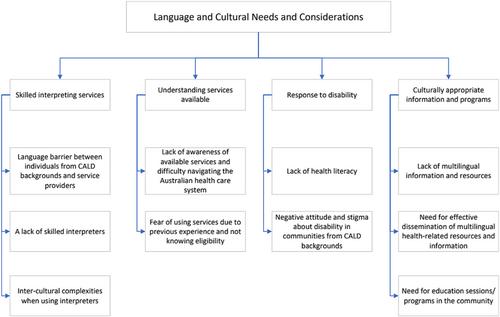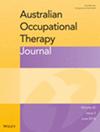A scoping review into the service needs of people from culturally and linguistically diverse backgrounds living with disability to engage in meaningful occupations
Abstract
Introduction
Although there is a large proportion of people from culturally and linguistically diverse backgrounds within Australia, their rate of access to disability services is disproportionately low. This review aims to understand the service needs of people from culturally and linguistically diverse backgrounds with disability to facilitate engagement in meaningful occupations.
Methods
Arksey and O'Malley's scoping review framework was employed. Ten databases were searched for Australian studies. A deductive content analysis framework was applied in the synthesis.
Results
Fourteen papers were included. Themes that emerged include language and cultural needs and considerations, which highlights the need for information sharing to take account of intergenerational, intercultural and sociolinguistic differences. It also identified the need for improved training and skills of existing interpreters. Culturally competent and responsive services was another theme identified, which emphasised the need to enhance the workforces' understanding of cultural practices. There is also a strong call for a more culturally diverse workforce to reduce the use of some interpreters and to build a more culturally competent workforce. The last theme was responsive service delivery, which requires the governance to support the development of a nurturing trusting therapeutic relationship.
Conclusions
Service providers should be trained on the inequities and intersectionality of this population. Further research is required to explore current disability policy in Australia with an intersectionality lens to ensure recommendations can be made to address barriers and ensure this population receives services in a manner that enhances their ability to engage in occupations meaningfully.


 求助内容:
求助内容: 应助结果提醒方式:
应助结果提醒方式:


